A season at Eagle Shores Trailer Park
Elvis, Me, and the Postcard Winter
by Leslie Gentile
Toronto: DCB Books, 2024
$14.95 / 9781770867666
Reviewed by Alison Acheson
*
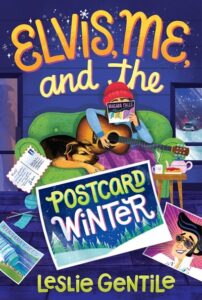
“The first postcard from the King of Rock and Roll arrived in December of 1978, just over a year after he had officially died. All that winter he kept on sending them.” —Elvis, Me, and the Postcard Winter
Elvis, Me, and the Postcard Winter begins here, with this fun premise. And the opening page ends with: “I watched as he unloaded… an armload of fancy Elvis-style jumpsuits and moved into the Eagle Shores Trailer Park. Right here on the Eagle Shores Indian Reserve on Southern Vancouver Island.” This so caught me!
The main character of Leslie Gentile’s third book is twelve-year-old Truly, whose mother, Clarice, has abandoned her. She now lives with Andy (Auntie) El and Raymond, who has stepped forward to father her. All of which is set up by the events and turns in an earlier book, Elvis, Me, and the Lemonade Stand Summer, which won the City of Victoria Children’s Book Prize, along with the Jean Little First Novel Award.
I suspect the first book has at least as much heart as this one, in exploring home and family—though for Southern Vancouver Island resident Leslie (Shamus The Urban Rez Dog, P.I.) “family” does not have to be blood, and can be quite extended. The focus is on genuine caring for each other, even when those who should care, don’t. Case in point: mothers.

There are moments throughout that embody this “heart” that fills the work. The love of the neighbours who have chosen to share their home with Truly is such a gift and example of how community should be. The reader knows, even if Truly doesn’t quite yet, that this gift will always be love and heart that she can count on. Truly has had a tough life, so this piece is reassuring. Farther into this story, she learns not to doubt it—that she can count on this care—and this piece of understanding to trust is significant in the life of a young person. I appreciate how this is not spelled out in the story. It’s simply there to be absorbed by Truly and the reader, too—that life can possess such.
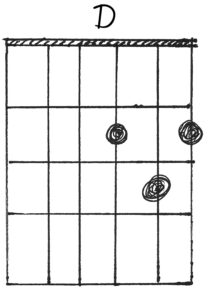
In other places, much is spelled out. The prolific use of adverbs tends not to connect with the reader’s imagination, but ‘hands over the goods.’ Especially adverbs such as “shyly” or “nervously,” are so self-aware in a story told in first person. There are also a number of fortuitous coincidences, such as the moment when Truly doesn’t have enough funds to purchase a vase she wants to give as a gift… and suddenly it’s on sale. Or the moment when, with nothing to push her, she decides to stand up to the school bullies with language unfamiliar to that point in the story. I would love to have witnessed and understood how she gained the strength for this act of courage.
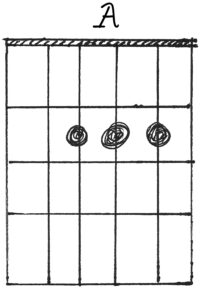
One episode that particularly resonates and rings with sadness and truth is when Truly feels that her mother had “once again… ruined something… and I was ashamed to feel that way about my mother.” This scene works well in the way that articulating and naming emotions plainly can; at times in books for younger readers the old show-don’t-tell maxim from writing classes can be jettisoned in favour of clear understanding.
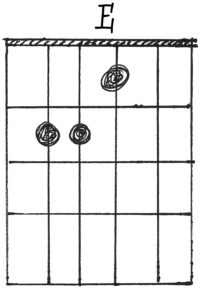
The messaging about chores and homework stands out in a way that would have irritated me at a younger age. But there is the comfort of routine for a child used to not having pre-expiry-date milk in the fridge, yes. As an adult, I understand that. The juxtaposition of food and meals in the two trailers that are and have been “home” to Truly leaves a taste in my mouth and a hollow feeling in my gut that is altogether well done.
Along with the date of Elvis’s death as setting, there was a mention of a landline telephone and other small clues to give a sense of the era. The break from current technology was so welcome! But including the clothing, food, and pastimes of that time could add to the whole, and give a young reader a deeper offering of history.
Will a young reader notice any of my quibbles? Perhaps they’ll only sense the lack of a through-line driving the story: what does Truly want that moves and evolves chapter by chapter? There aren’t goals and needs in the driver’s seat here, but more a sense of episodic, day-to-day life. Getting homework done so that the guitar can be practiced; making another meal and sitting to eat; or falling asleep. These three are typical chapter endings.
Altogether, I enjoyed being with Truly, feeling her joys and pain, and her arms around her wonderful dog, Gracie.
So far we have a book of Summer, and now Winter. I’m hoping there might be a Fall and Spring, too. While I think the writing can be stronger, and the editing a bit more hands on, the character of Truly and those who care for her as family and friends really does win over all, and me, too, in the end. Heart trumps!
And I’m still so curious about the mysterious Mr. Kingsley, with his jumpsuits…

*
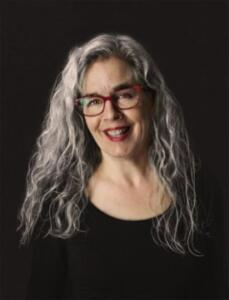
Alison Acheson is the author of almost a dozen books for all ages, with the most recent being a memoir of caregiving: Dance Me to the End: Ten Months and Ten Days with ALS (TouchWood, 2019). She writes a newsletter on Substack, The Unschool for Writers, and lives on the East Side of Vancouver. [Editor’s note: Alison Acheson has also reviewed books by Caroline Lavoie, Janice Lynn Mather, Li Charmaine Anne, Linda Demeulemeester, Hanako Masutani, Julie Lawson, George M. Johnson, Janice Lynn Mather, Jacqueline Firkins, Barbara Nickel, and Caroline Adderson for BCR; and Dance Me to the End was reviewed by Lee Reid.]
*
The British Columbia Review
Interim Editors, 2023-25: Trevor Marc Hughes (non-fiction), Brett Josef Grubisic (fiction and poetry)
Publisher: Richard Mackie
Formerly The Ormsby Review, The British Columbia Review is an online book review and journal service for BC writers and readers. The Advisory Board now consists of Jean Barman, Wade Davis, Robin Fisher, Barry Gough, Hugh Johnston, Kathy Mezei, Patricia Roy, Maria Tippett, and Graeme Wynn. Provincial Government Patron (since September 2018): Creative BC. Honorary Patron: Yosef Wosk. Scholarly Patron: SFU Graduate Liberal Studies. The British Columbia Review was founded in 2016 by Richard Mackie and Alan Twigg.
“Only connect.” – E.M. Forster
One comment on “A season at Eagle Shores Trailer Park”